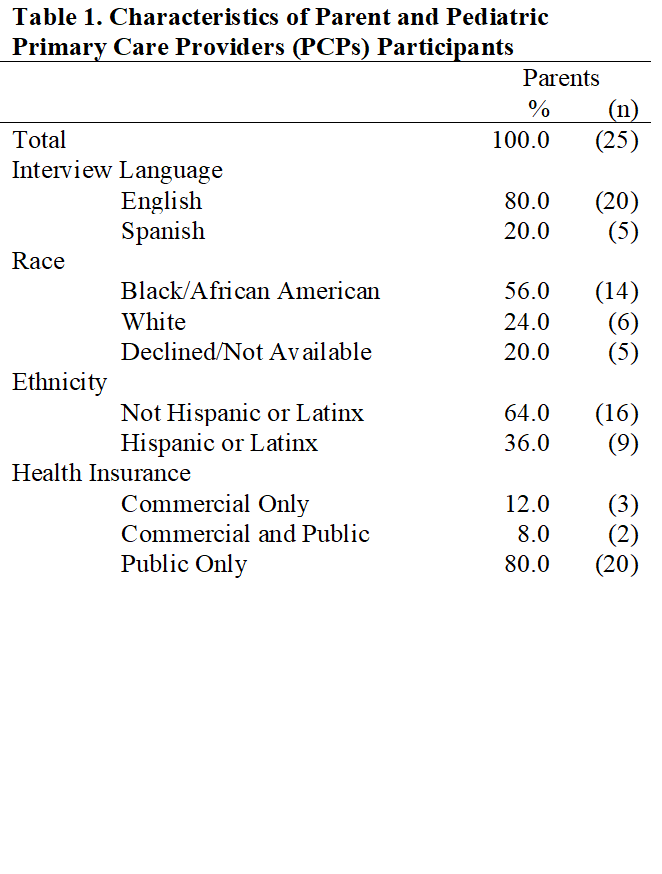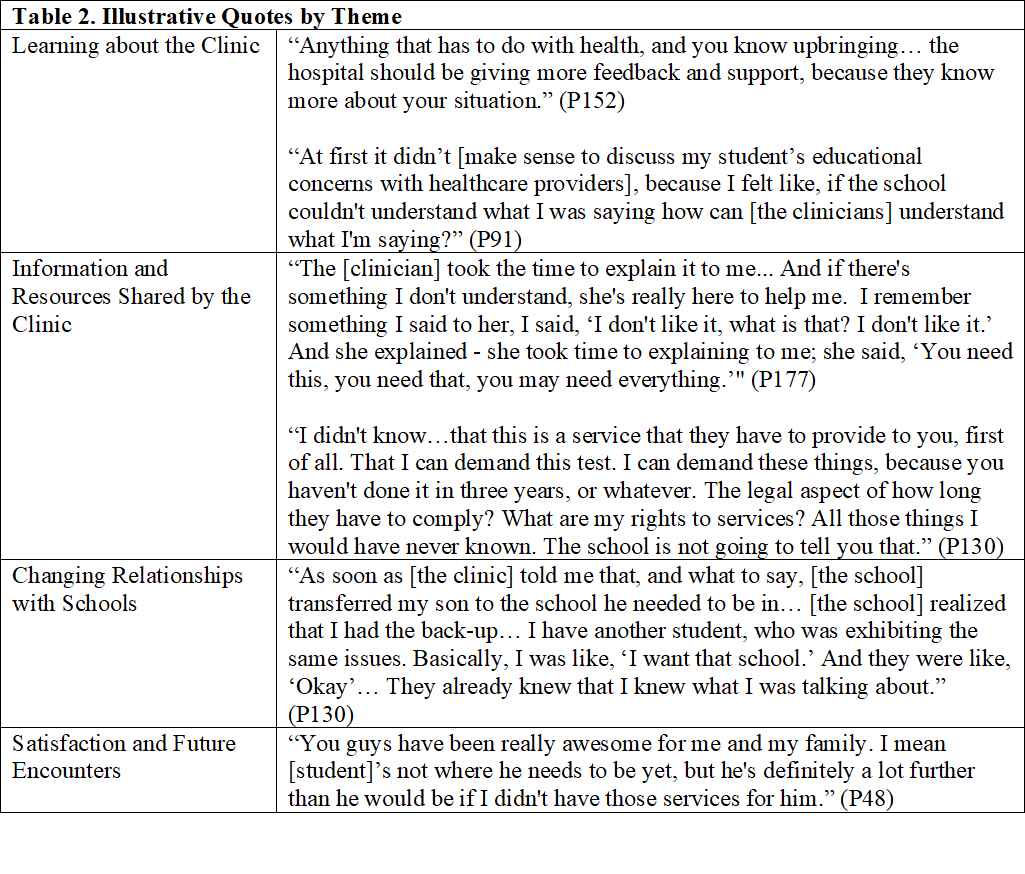General Pediatrics: All Areas
General Pediatrics 2
127 - The School “Realized I Had Back-Up:” Parents Perspectives on Receiving Special Education Supports from their Primary Care Clinicians
Publication Number: 127.115
- MS
Michelle Stransky, PhD (she/her/hers)
Senior Research Scientist
Boston Medical Center
Boston, Massachusetts, United States
Presenting Author(s)
Background: Parents consistently report difficulties collaborating meaningfully with schools’ special education programs to address youth needs, including lacking knowledge about special education services, regulations, and jargon. The American Academy of Pediatrics has tasked pediatricians with providing supports in these areas to parents of youth who need special education, but pediatric primary care providers (PCPs) are unable to provide such supports in practice.
Objective:
To describe parents’ experiences with the Engagement and Access to Special Education (EASE) clinic, a special education clinic embedded in pediatric primary care focused on addressing education-related challenges experienced by parents.
Design/Methods: English- and Spanish-speaking parents who used the clinic were recruited via phone to participate in semi-structured interviews and online surveys. Interviews queried parents’ experiences with the clinic and schools and concerns about their youths’ learning. The survey queried parents’ experiences based on state Department of Education guidelines, special education knowledge, advocacy, and empowerment. Spanish-speaking parents were interviewed and completed the survey in Spanish. Interviews were audio-recorded and transcribed for thematic analysis in NVivo.
Results: Twenty-five parents participated (Table 1). Four themes were identified: 1) Parents were pleasantly surprised to learn about the EASE clinic. Although some parents were unsure about receiving educational supports from their pediatric PCPs, others reported that “it made sense.” 2) Parents reported that clinic personnel explained the special education process, testing results, and how to request services and provided other resources that parents needed. 3) Interviews revealed how the supports provided by the clinic improved parents’ adversarial relationships with schools. 4) Finally, parents reported overall satisfaction with the clinic and intended to use it as needed in the future. Some wanted the clinic to increase visibility so that other parents could utilize the supports. Illustrative quotes are in Table 2.
Conclusion(s): Parents’ perceptions of support, knowledge and advocacy gains, and satisfaction with the EASE Clinic situate it as a one-of-a-kind healthcare system-based intervention to support parents with their youths’ educational needs. Our evaluation of the clinic supports dissemination and implementation of this unique primary care-embedded special education clinics in new contexts.

